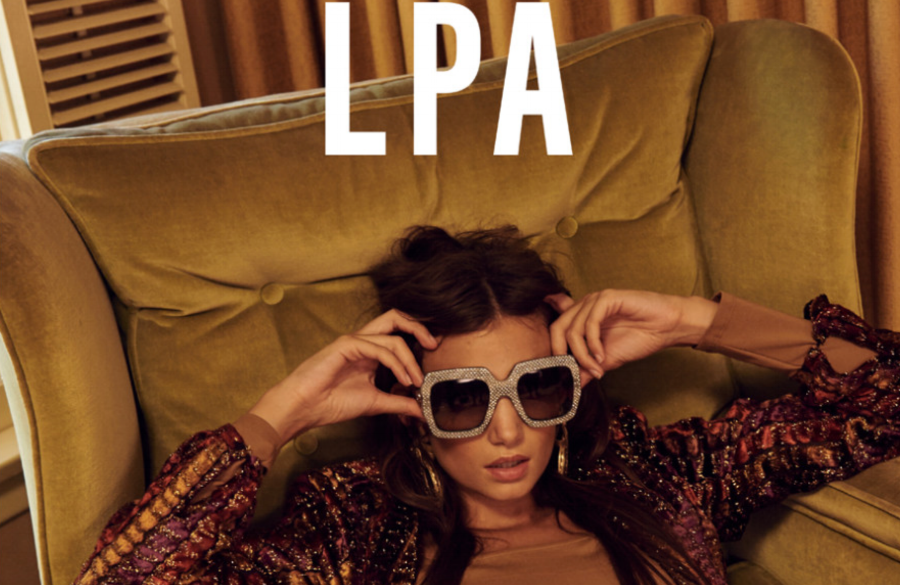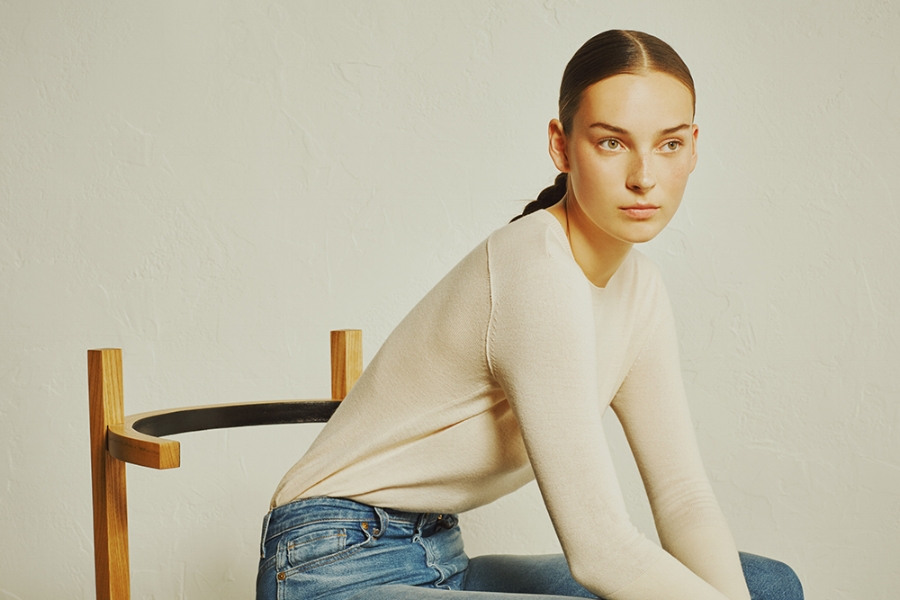
image: LPA
Over the summer, the New York Times shed light on the budding Los Angeles-based fashion brand, LPA. The lengthy spread highlighted founder Pia Lara Arrobio’s ability to build a thriving young label without sewing or making patterns for garments, noting that Ms. Arrobio “has people for that.” Those people largely fall under the umbrella of Alliance Apparel – a company whose model sheds light on a budding new way of building mini fashion conglomerates.
Nestled in the heart of the Los Angeles Fashion District, Alliance Apparel is far from a small operation. In fact, the company, which was founded in 2014 by designers – and brand builders – Mitch Moseley and Raissa Gerona, is in expansion mode. As a fashion design and production company, Alliance Apparel is the force behind 13 buzzy brands – including Arrobio’s own celebrity-favored line. Also on Alliance Apparel’s roster: Lovers + Friends, Tularosa, NBD, Raye, Privacy Please, L’Academie, Grlfrnd Denim, Majorelle, and h:ours, among others.
Tasked with not only conceiving of and launching brands, Alliance Apparel also runs them by designing and overseeing the manufacturing of the products (roughly five collections per year per brand, with tags that mostly read “Made in India”), marketing the individual labels, and handling sales – primarily out of its showroom in The New Mart and the Cooper Design Space.
Yes, Alliance’s strength, in its own words, is its “unparalleled ability to identify a specific market niche” and launch brands “designed with a distinct consumer interest and personality in mind.” The core component: “An honest connection with the consumer.”
“My job is to create brands and make sure people know about our brands, fall in love with them, and connect with them. The more they fall in love, the better,” Gerona told WhoWhatWear last May. Moseley, on the other hand, is tasked with running the company’s operations, including accounting, shipping and other logistics.
Things changed in 2015, though, when Alliance Apparel was acquired by Revolve. As noted by WWD, “Alliance has been on a tear more recently with its brand launches following its 2015 acquisition by Revolve for undisclosed terms.” (Note: More recently, California Apparel News reported that the deal was a “cashless” one, noting, “instead of cash, the two Alliance Apparel cofounders got a stake in Revolve and an infusion of cash [solely for the purpose of] developing more brands.”).
Revolve co-founder Michael Mente said the deal with Alliance was something of a no-brainer for Revolve. “Alliance Apparel was an attractive acquisition due to the Alliance team building an infrastructure that was able to scale quickly with great efficiency. We explored other acquisition opportunities, and nothing compared to the Alliance team,” Mente told Apparel News. “Our plan for Alliance is to continue to organically build new brands. Alliance has a lot of exciting projects in the pipeline, which I’m super excited for.”
The Alliance-Revolve partnership is certainly a noteworthy one for a number of reasons, not least being that it marked Revolve’s first acquisition since its launch in 2003. The online retailer, which was launched by Mente and Mike Karanikolas, is a shopping mecca for the digitally-minded millennial. Considered a one-stop shop for clothing items designed by some of the hottest emerging designers – and as Bloomberg noted last year, all things West Coast style related – Revolve expected to bring in $600 million dollars in sales in 2016, up from around $400 million the year prior.
The pair’s marriage is also noteworthy, as it has seen Apparel expand its offerings from 3 brands – Lovers + Friends, Tularosa and NBD – at the time of the deal to 13, and counting! While these brands are, in fact, sold in Revolve’s suit, they are also available by way of third-party retailers, such as Nordstrom, ShopBop, and Bloomingdale’s, among others.
While Moseley emphasizes that Alliance Apparel is a portfolio brand-development house, not a private label for Revolve, it is difficult not to notice that, as Bloomberg noted late last year, each of Alliance’s brands are “designed for different sectors of the Revolve aesthetic—boho dresses, little bright rompers, or flashy nightlife attire.”
Part of a Growing Trend
Finally, the parties’ marriage – albeit an unexclusive one – is striking as it is indicative of a growing trend within the fashion industry. While Michael Kors and Coach may be battling for the title of America’s version of LVMH or Kering by way of acquisitions of other brands, a handful of companies are out to prove that you can build a collective without the acquisition spree.
In building brands in an in-house capacity, Alliance joins the likes of Assembled Brands, for instance, the parent company of four New York-based labels: The Line, Protagonist, Khaite and Tenfold. Launched in 2013, Assembled Brands – the brainchild of Adam Pritzker, a member of Hyatt hotel family, and stylist/consultant Vanessa Traina – is building its own brands from the inside-out.

image: Khaite
According to Traina, the company – which describes itself “a modern holding company transforming emerging design companies into enduring brands through resources that lower operating costs and increase revenue, allowing designers to focus on product above all else” – specifically operates by “providing shared resources across the entire group: creative direction, product development – and acts an incubator for our brands.”
Also in the mix is New Guards, a Milan-based production and distribution company formed by Marcelo Burlon, along with partners Claudio Antonioli (of multi-brand boutique antonioli.eu) and Davide de Giglio, in late 2014.
The group – which represents an amalgamation of the Alliance model and the traditional conglomerate acquisitions approach – consists of four separate brands, County of Milan, Off-White, Palm Angels and Ben Taverniti Unravel Project, that are working together to make high-quality garments equal to those of big-name Italian fashion houses, but from sources that are situated differently than the industry’s most established houses.
“We all know each other and there’s support for each other. It’s like a new movement,” Burlon, whose own label, County of Milan – which got its start in late 2012, rakes in about 20 million euros ($23.6 million) a year and boasts over 450 stockists worldwide, told BoF.
“Everyone has their own team. And there is no mix,” Burlon told Style.com in 2015. “Each brand’s creative process and identity is fiercely preserved, but the group leverages synergies and productivities of its shared services.”
And as of now, the four brands – County of Milan, Virgil Abloh’s Off-White, Palm Angels and Ben Taverniti Unravel Project – are working in 1,000-plus-square-meter atelier in … Milan, of course, and Burlon holds an unspecified stake in each of the companies.
While analysts are predicting the onslaught of an array of mergers and acquisitions in the near future, many of them are expected to be smaller in scale. With that in mind, it is entities like Alliance (and Revolve) that appear to be indicative of the future of fashion, building it out one brand at a time.










